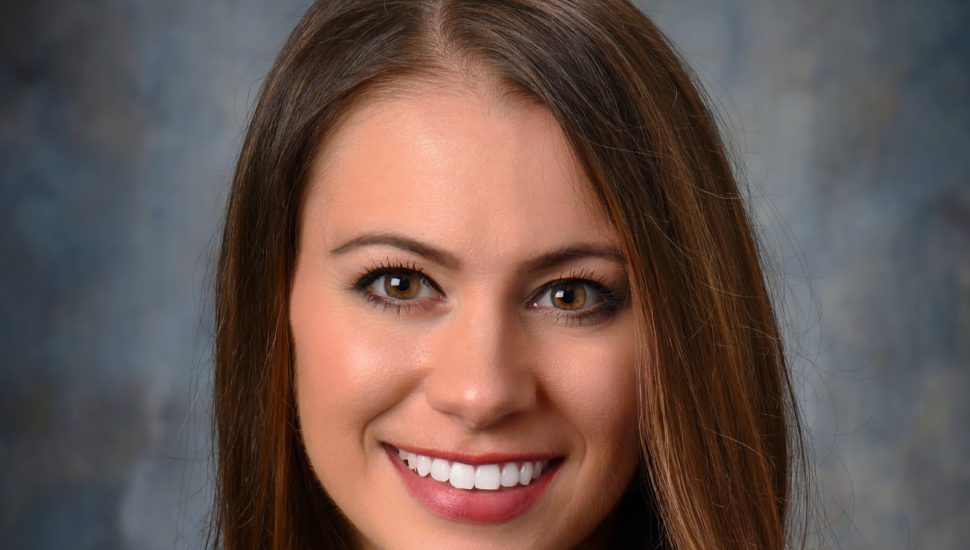For WilmU’s Transfer Students, a Degree Is Greater Than the Sum of Its Parts

 By David Bernard
By David Bernard
You can’t really describe an incoming class at Wilmington University as new students. Every year, most of the newest students to arrive at WilmU aren’t new to college classrooms or coursework at all, and they’re not starting their studies from square one. In fact, for many incoming students, and for many reasons, WilmU is a place to put the pieces together and achieve their educational goals.
On average, more than 60 percent of the students entering WilmU’s undergraduate programs over the past five years have transferred credits from other schools, a population that far outweighs those who enter as freshmen, or re-enter to continue previous academic work. And transfer students succeed at WilmU. The graduation rate for full-time students who transfer 60 or more credit hours, or who apply an associate degree toward a bachelor’s degree program, is 85 percent.
From New Castle to the World
They come from Delaware Technical Community College and the University of Delaware. They come from WilmU’s partner schools in New Jersey: from Rowan College at Burlington County; from Cumberland County College and Rowan College at Gloucester County, which joined forces as Rowan College at South Jersey earlier this year; from Camden County College, Mercer County Community College, and Salem County Community College; even from WilmU’s site at Joint Base McGuire-Dix-Lakehurst.
Transfer students come from community colleges throughout the region, and beyond. WilmU’s partnership with Denver, Colorado-based Guild Education, which coordinates employer-sponsored education benefits for some of the nation’s largest companies, has opened our doors to students across the country. And our wealth of 100 percent online degree and certificate programs have made it possible for students worldwide to transfer credits toward a WilmU education.
Whether they’ve previously earned an associate degree or picked up a few college courses here and there; whether they’re completing their degree in Delaware, at one of WilmU’s New Jersey partner sites, or online, there are a number of reasons why WilmU works for transfer students.
Credit Where Credit Is Due
You shouldn’t have to pay for your education twice. That’s the thinking behind WilmU’s generous credit transfer policy, which accepts up to 90 credit-hours from other accredited schools, prior learning assessments, College-Level Examination Program (CLEP) exams, certificate programs, military coursework, and occupational trainings and certifications.
In many cases, there’s no expiration date on these credits. And according to WilmU’s transfer credit evaluators, many transfer students start with enough credits to be more than halfway toward a bachelor’s degree.
“An associate degree puts them in an even better position,” said Sherri Strobel, director of academic advising and student success. Community college graduates are able to transfer their entire associate degree into a WilmU completion degree program, a personalized track that includes the courses necessary to build the two-year degree into a bachelor’s.
Affordable and Accessible
“If you’re coming from a community college, university prices can hit you with a sticker shock,” said Strobel. “But we’re affordable. We’re higher education without higher costs.”
WilmU’s tuition rates don’t make a distinction between in-state and out-of-state residents: every student pays the same amount. “That’s why we’re so popular in southern New Jersey,” which is only 15 minutes away but across the state line, said Dennis Huffman, director of student outreach and transfer credit evaluation. It’s also a considerable benefit to students who are telecommuting from Bentonville, Arkansas, or Shenzhen, China.
In fact, transfer students may not even have to cross the bridge from New Jersey to earn their degree from a Delaware university. Depending on their program, they might be able to earn their bachelor’s in community college classrooms close to home, thanks to WilmU’s New Jersey partnerships. Or, of course, wherever their laptop is.
The Story of Two Nurses
Ask Danielle Hughes, a lead practice clinical nurse in hematology and oncology at the MD Anderson Cancer Center at Cooper Hospital in Voorhees, N.J. She was a transfer student by professional necessity. An associate degree from Cumberland County College enabled her to enter the nursing field, but many hospitals and healthcare systems now all but demand their nurses earn a Bachelor of Science in Nursing (BSN).
“After enrolling in Cumberland’s nursing program, I knew I’d have to further obtain a BSN,” she said. “My educational goal at that time was to complete my associate at Cumberland, then immediately enroll in the BSN program at WilmU.”
She was able to accomplish this while holding down a job. “A big factor for choosing WilmU was the convenience of location and accessibility,” said Hughes. ” I was working full time in Vineland, so the program made it easy to attend in-person sessions at WilmU’s Cumberland location.”
Patricia Sanchez, the director of risk management for Inspira Health Network in Vineland, also found the New Jersey locations to be a plus. She earned her WilmU BSN in the Garden State after graduating from Cumberland County College and while working as a nurse manager.
“The college is located next to the hospital campus, which made attending classes after work manageable, as did all the online courses available,” she said. “The hybrid format was the best option for my schedule: online for a few courses and in-person for the ones I found more challenging in their content.”
Finishing What They Started
Sanchez received her BSN in 2009, Hughes in 2013. Since then, both have earned Master of Science in Nursing degrees from WilmU: Hughes in 2017, Sanchez the next year. This says a great deal about transfer students at WilmU.
Consider the student who has taken college courses — perhaps an associate degree’s worth, perhaps fewer — and returns to college to complete a bachelor’s degree. Maybe it’s immediately following a community college graduation. Or maybe it’s after life intervened, as it occasionally does. This student has a goal, and is working to achieve it.
“These are students who had started something, and are now demonstrating the grit to continue and start building something again,” said Lindsay Rice, WilmU’s director of academic partnerships. “WilmU provides them with an opportunity to finish what they started.”
The University’s open admissions policy, rolling schedule that begins classes every eight weeks, diverse student population that welcomes working adults, and wide range of programs, locations, and course formats makes this opportunity possible, he says.
“Transfer students are powerful people,” said Rice, “and we fill an important need for the students we serve and the credits they bring.”
Click here to learn more about Wilmington University.
[uam_ad id=”80503″]
.
[uam_ad id=”80502″]
Connect With Your Community
Subscribe to stay informed!
"*" indicates required fields























![95000-1023_ACJ_BannerAd[1]](https://vista.today/wp-content/uploads/2023/03/95000-1023_ACJ_BannerAd1.jpg)
























